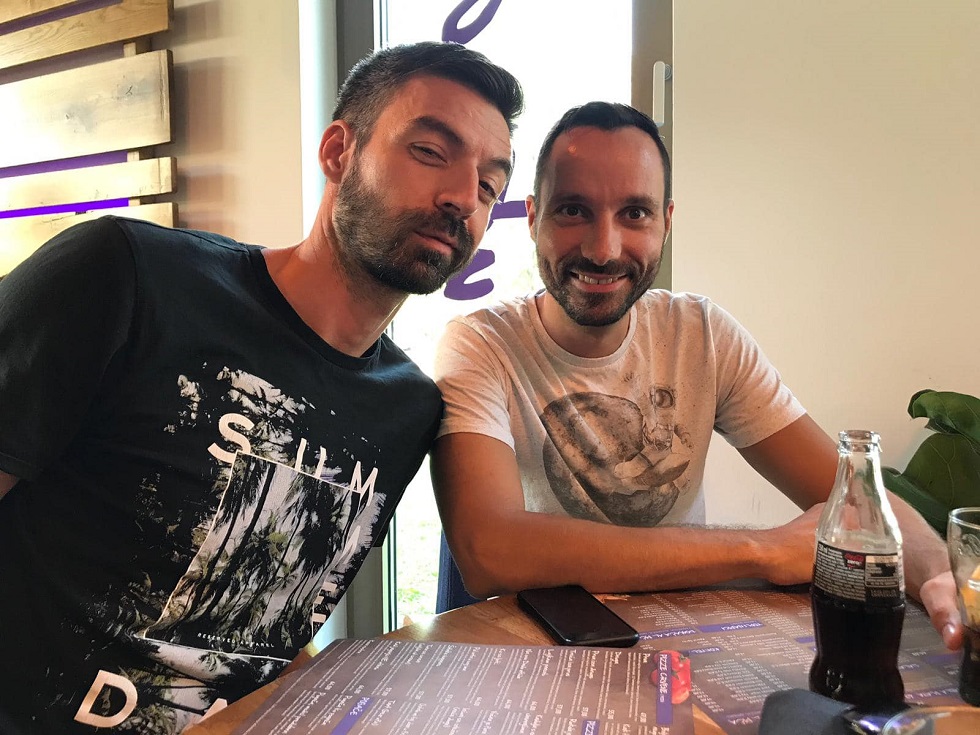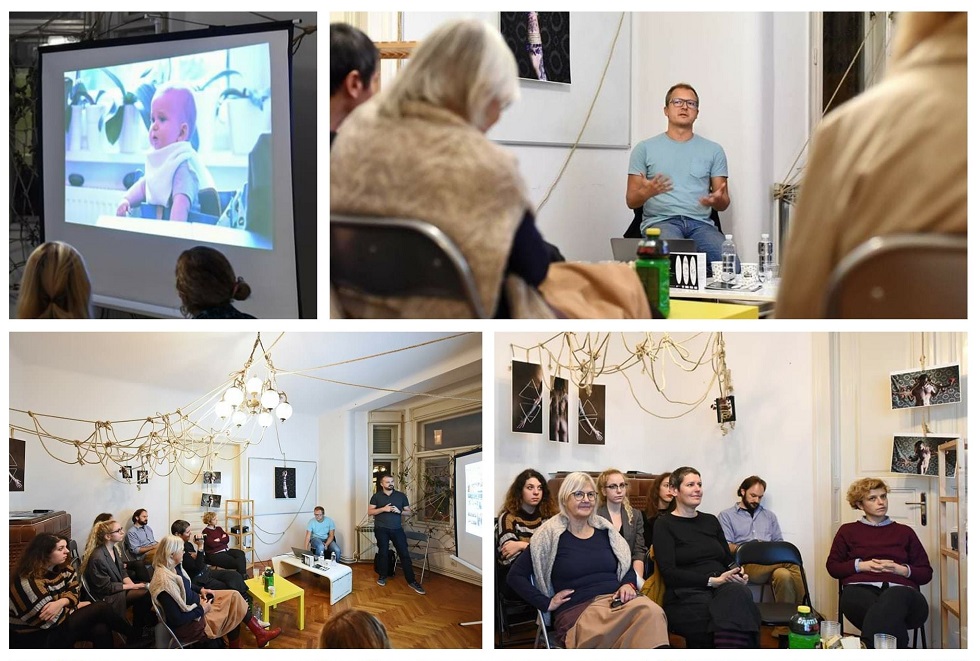For the very first time in Croatia, a Zagreb court rules that same-sex married couple Ivo Šegota and Mladen Kožić have the right to be foster parents, and the Ministry of Demography, which rejected their request to provide foster care last year, must implement the new decision within 60 days, this time in accordance with domestic and international legislation.
It stems from yesterday’s decision by the Zagreb Administrative Court, which annulled previous decisions including the refusals of the Center for Social Welfare and the ministry, according to Kristina Turčin/Jutarnji List on December 19, 2019.
Croatia Court Decision Final: No Appeal Allowed
“The court’s decision is binding, and an appeal is not allowed, so this judgment is final. The written ruling has not yet arrived, but as stated during the announcement, the court accepted our argument in the lawsuit, based on Croatian regulations and the European Convention on Human Rights. As a result, the court ordered the relevant government agencies to implement the new decision in accordance with the judgment. We believe that the agencies will respect the court decision,” stated Sanja Bezbradica Jelavić, the attorney representing Ivo Šegota and Mladen Kožić.
“We are overjoyed. As we told the judge, this is the Christmas gift we didn’t dare hope for,” Šegota revealed.
In 2015, he and his partner Mladen Kožić were among the first couples to enter a life partnership after the Life Partnership Act was passed in Croatia. Their desire to grow their family and raise children has existed for a long time.
Request to Adopt Rejected: Court Case Pending
“We have wanted to be parents for a long time. Therefore, shortly after our partnership ceremony, we submitted a request to the Center for Social Welfare to become adoptive parents, but were rejected immediately, which is why we have also initiated a lawsuit in the Zagreb Administrative Court, which is still pending,” according to Šegota.
They were not discouraged and started considering other options, such as foster care.
“We gave it a lot of thought. We are aware that this is temporary, rather than permanent childcare, and that foster parents are not adoptive parents, but we have concluded that this option is still a dream come true,” he continues.

Applied to Become Foster Parents as Adoption Alternative
Therefore, Šegota applied with his life partner Mladen Kožić to the Zagreb branch of the Center for Social Welfare to become foster parents in the summer of 2017.
“Our application was very well received, especially by the psychologist and the social worker, who were particularly pleased when we announced that we were interested in fostering two or three children. Zagreb lacks foster families, especially those with the capability and desire to foster more than one child, which is why the centers are often forced to separate biological brothers and sisters,” he explained.
They both underwent an extensive psychological assessment process, during which they performed parenting skills tests, interviews, and discussed their motives for becoming foster care providers. A social history evaluation was also performed to assess their environment and family support network.
Center Rejects Foster Application Even Though Requirements Met
“We completely satisfied the requirements, received a positive assessment and everyone seemed pleased that this was happening. However, suddenly the center stopped contacting us. After the positive evaluation, we should have begun compulsory foster care training, which would have been followed by obtaining a foster care license. Suddenly, we could no longer get a response, and then in early December 2017, we were informed in writing that there were no legal prerequisites for initiating the licensing procedure because we are in a life partnership,” Šegota recounted.
They were very disappointed, he says, because after the initial response, they had hoped everything would be okay. After all, the Life Partnership Act clearly states that life partners are supposed to be legally on par with heterosexual spouses. As lawmakers have often pointed out, the only right that can be challenged is joint adoption of children – but not foster care, which is a profession and does not imply permanent childcare.
“We immediately submitted complaints to the Ministry of Demography about the center’s decision, but they rejected our appeal. We had no option but to institute legal proceedings,” they concluded.
Discrimination Lawsuit Initiated in July 2018
Their lawyer Bezbradica Jelavić initiated the lawsuit in July 2018. She noted that the center had begun the official evaluation of Šegota and Kožić in accordance with the Foster Care Act, but despite conducting a full procedure, which lasted four months, the center eventually rejected their request “because of a lack of legal presumptions.”
“Such a sudden detour in the evaluation process led us to the conclusion that there was a directive from above to treat these applicants differently. Considering the abrupt termination of the proceedings which were already underway, and even though the plaintiffs had met all the legal requirements, it’s obvious that the Center for Social Welfare’s treatment of the applicants was discriminatory due to their sexual orientation.” The lawsuit further outlined the plaintiffs’ right to equal treatment and family life according to the law. National regulations, the constitution and international treaties guarantee the prohibition of discrimination as specified by the Convention for the Protection of Human Rights and Fundamental Freedoms.
“The plaintiffs state that they became aware that the Center for Social Welfare had abruptly discontinued another foster care evaluation involving life partners. This case, which had reached a later stage in the assessment, indicated that discrimination against same-sex couples exists within the organization,” the lawsuit concludes, and cites several judgments from the European Court for Human Rights regarding similar cases, which were decided in favor of same-sex couples.
Well-Being and Interest of Children Should Come First
In the lawsuit, they also cautioned that the sole focus of the foster care profession should be the interest and well-being of children, not the sexual orientation of the foster parents, especially given the fact that the demand for foster parents is extremely high.
“Thus, by rejecting the request for foster care, the Center for Social Welfare in Zagreb violated not only the applicant’s fundamental human rights, but also the right of a child or more children to quality accommodation and care, which they would receive in a stable family setting.” According the center’s own evaluation, Šegota and Kožić demonstrated that they could provide this kind of environment, before their application was summarily rejected.
“The court fully accepted this argument in the lawsuit,” confirmed Bezbradica Jelavić, attorney for the couple.
Šegota and Kožić believe that the ministry and the foster care team at the Center for Social Welfare will respond quickly to the decision by the Zagreb Administrative Court. However, since the verdict has just been published and a written explanation is still pending, the Ministry of Demography has not yet been made aware of the details and could not comment or announce how it would react.
Excited to Finally Become Foster Parents
“We have patiently awaited this verdict. And we’re excited because we believe that we’ll be licensed as foster parents within the next few months and a child will arrive in our family. Or more children,” Šegota hopes.
He points out that this decision is completely in line with the foster care profession because, he emphasizes, foster parents do not have a right to a child, but every child has a right to a family.
“We hope that our family will be the right one for a child,” he conveyed. Kožić adds that it is good that the decision has been redirected to the requirements of the profession because the rights of a child should not be the topic of daily political debate.
“The government, after adopting the new Foster Care Act, reiterated that they did not want to explicitly allow life partners to provide foster care because it contradicts their worldview, but at the same time they indicated that if the court rules otherwise, they will respect the court’s decision. Now the court has provided children who don’t have a family with an opportunity for Santa Claus rather than a Grinch. Because it is the right of every child to grow up in a loving family, and not in an orphanage,” Kožić concludes.

Founding Members of Croatia Based ‘Rainbow Families’
Šegota and Kožić are among the founders of the Croatia based group “Rainbow Families,” which is modeled after similar organizations worldwide, and brings together LGBTIQ couples and individuals who have children, want to have children, or would like to learn more about the rewards and challenges of raising a family.
Members of the organization first came together in 2011 in a psychosocial support group organized by the Zagreb Pride Association, led by psychologists Iskra Pejić and Matee Popov. After completing two support group cycles, the group members continued to meet and socialize as an informal citizens’ initiative. Then, they established a forum and a website. In 2017, their association was officially registered. In 2018, they published an illustrated book titled “My Rainbow Family,” which was first book in Croatia to feature children with same-sex parents. In 2019, they organized the first international conference on rainbow families called “Our Children Are Fine.” Rainbow Families regularly organizes group activities and gatherings, which continue today.
For non-traditional families in Croatia, sharing experiences with others in similar circumstances can be very rewarding and fulfilling. In Rainbow Family meetings, LGBTIQ parents, and those planning parenthood, are given the opportunity to share their experiences and get to know each other.
Full Joint Adoption by Same-Sex Couples Legal in Seventeen European Countries
Full joint adoption by same-sex couples is legal in seventeen European countries: Andorra, Austria, Belgium, Denmark, Finland, France, Germany, Iceland, Ireland, Luxembourg, Malta, the Netherlands, Norway, Portugal, Spain, Sweden and the United Kingdom. Another five: Estonia, Italy, Slovenia, San Marino and Switzerland permit stepchild adoption in which the registered partner can adopt the biological and the adopted child of his or her partner in some cases. In Croatia, a life partner may become a partner-guardian over their partner’s child, which is somewhat comparable to stepchild adoption. The new policy in Croatia follows that of Greece in which same-sex couples in a civil partnership may become foster, but not adoptive, parents.
Follow our Politics page for more information on LGBTIQ rights in Croatia.










